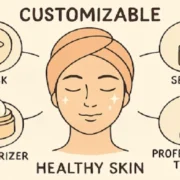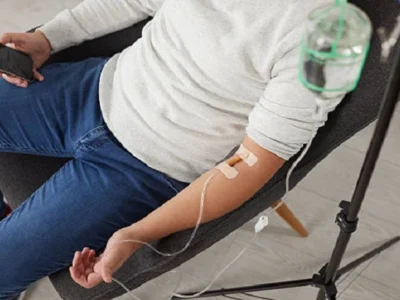If you are experiencing symptoms related to fibroids, seeking professional help is essential. Visiting a Fibroid Treatment Center in Bronx, NY, can provide you with the necessary care and treatment. Understanding what to expect during your visit can help ease anxiety and prepare you for the process. Let’s explore the steps and procedures involved in a visit to a fibroid treatment center.
Initial Consultation
You will meet with a specialist during your initial consultation to discuss your symptoms and medical history. This is important in understanding your specific condition and determining the best course of action. The specialist will ask you detailed questions about your menstrual cycle, pain levels, and any other symptoms you may be experiencing.
You can also ask questions and voice any worries during this consultation. The specialist will provide information about fibroids, including their causes and potential treatments. This initial meeting sets the foundation for your treatment plan and ensures that both you and your doctor are on the same page.
Diagnostic Tests
The specialist may recommend a series of diagnostic tests to diagnose your condition accurately. These tests can include ultrasounds, MRIs, or other imaging techniques to get a clear view of the fibroids. These tests are crucial in determining the size, location, and number of fibroids present.
Diagnostic tests are usually non-invasive and painless. They provide essential information that helps in creating a tailored treatment plan for you. The results of these tests will be discussed with you during a follow-up appointment, during which your specialist will explain the findings and next steps.
Personalized Treatment Plan
Based on the diagnostic tests and initial consultation, your specialist will create a personalized treatment plan tailored to your specific needs and condition. This plan may include a combination of lifestyle changes, medication, and possibly surgical options.
Your treatment plan, including the expected outcomes and potential side effects, will be discussed in detail with you. This personalized method makes sure that you get the best care possible. The specialist will also guide you on how to manage symptoms and improve your overall health during the treatment process.
Minimally Invasive Procedures
Many fibroid treatment centers offer minimally invasive procedures as a treatment option. These procedures include uterine fibroid embolization, laparoscopic myomectomy, and hysteroscopic myomectomy. These techniques are less invasive than traditional surgery and often result in quicker recovery.
Minimally invasive procedures use small incisions and advanced technology. They aim to remove or shrink fibroids while preserving as much healthy tissue as possible. Compared to traditional surgery, patients typically experience less pain and a faster return to normal activities.
Medication Management
In some cases, medication may be recommended to manage fibroid symptoms. Medications can help reduce pain, control heavy bleeding, and shrink fibroids. Your specialist will discuss the medication options available and how they can be incorporated into your treatment plan.
Medication management may involve hormonal treatments or medications specifically targeting fibroid symptoms. The specialist will monitor your response to the medication and make adjustments as needed. This approach can effectively manage symptoms and improve your quality of life.
Lifestyle and Dietary Recommendations
Lifestyle and dietary changes can significantly help manage fibroid symptoms. Your specialist may recommend diet, exercise, and other lifestyle factors that can help reduce symptoms. This holistic approach can complement medical treatments and improve overall health.
Incorporating more fruits, vegetables, and whole grains into your diet can help manage fibroid symptoms. Staying at a healthy weight and working out regularly can also help. Your specialist will provide personalized advice on how to make these changes effectively.
Follow-Up Appointments
Regular follow-up appointments are an important part of your treatment plan. These appointments allow your specialist to monitor your progress, adjust treatments as needed, and address any new symptoms or concerns. Consistent follow-up care ensures that your treatment remains effective and that any issues are addressed promptly.
During follow-up appointments, you can discuss any changes in your symptoms or overall health. The specialist may also perform additional diagnostic tests to track the progress of your treatment. Receiving this ongoing care is very important for getting the best results.
Emotional Support and Counseling
Dealing with fibroids can be emotionally challenging. Many fibroid treatment centers offer emotional support and counseling services to help patients cope with their condition. These services can provide a safe space to discuss your feelings, fears, and concerns.
Counseling can help you develop coping strategies and provide support throughout your treatment journey. Emotional well-being is an important aspect of overall health, and addressing these needs can improve your treatment experience. Your specialist can refer you to support groups or mental health professionals.
A visit to a fibroid treatment center involves several steps, from the initial consultation and diagnostic tests to personalized treatment plans and follow-up care. Understanding what to expect can help you feel more prepared and confident in seeking treatment. With the right care and support, you can effectively manage fibroid symptoms and improve your quality of life. Choosing a comprehensive and personalized approach ensures the best possible outcomes for your health and well-being.
Caring Touch Home Health Makes a Difference in Patients’ Lives










Comments